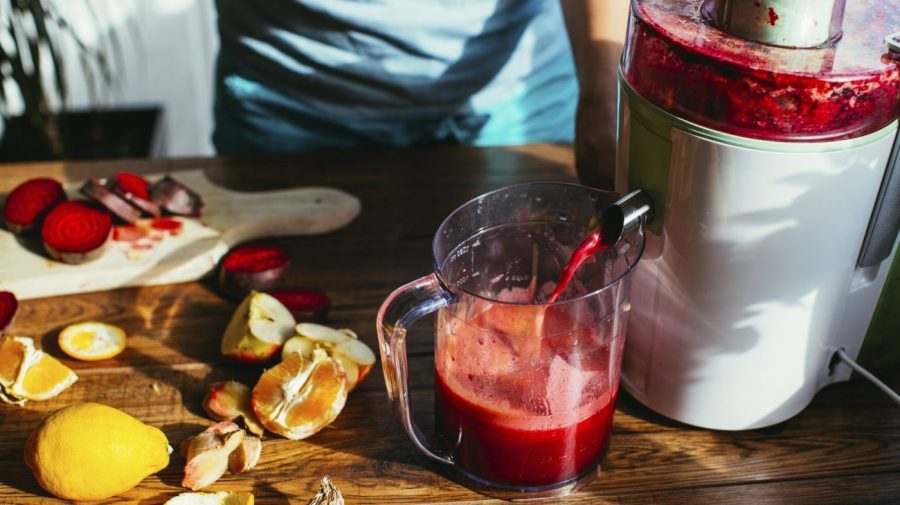
Many people undergo a juice cleanse in an effort to detoxify the body and improve health, but new research suggests they do more harm than good.
Researchers from Northwestern and San Raffaele universities found a diet of only vegetable and fruit juice, even for just three days, can lead to shifts in gut and oral bacteria linked to inflammation and cognitive decline.
The study, published in the “Nutrients” journal, looked at three groups of healthy adults following different diets. One group only consumed juice, another combined juice with whole foods, and the third ate only whole, plant-based foods.
“Most people think of juicing as a healthy cleanse, but this study offers a reality check,” said Dr. Melinda Ring, a senior author of the study and Northwestern Medicine physician. “Consuming large amounts of juice with little fiber may lead to microbiome imbalances that could have negative consequences, such as inflammation and reduced gut health.”
The study’s juice-only group showed the most drastic shift in their microbiome, including an increase in bacteria linked to inflammation and gut permeability. The whole, plant-based group had more favorable changes, and the juice-plus-whole-foods group saw fewer bacterial shifts.
“This highlights how quickly dietary choices can influence health-related bacterial populations. The oral microbiome appears to be a rapid barometer of dietary impact,” Ring said.
Reduced fiber in juice cleanses
The study also showed that juicing removes much of the fiber found in whole fruits and vegetables.
Fiber helps feed beneficial gut bacteria that produce anti-inflammatory compounds. Without fiber, sugar-loving bacteria can thrive, disrupting the gut microbiome.
High sugar content in juice can also fuel harmful bacteria, potentially impacting metabolism, immunity and mental health.
Role of the oral microbiome
According to the study, the oral microbiome responds quickly to dietary changes. The juice-only group experienced a decline in beneficial bacteria and increased bacteria linked to inflammation.
While the gut microbiota remained stable, the oral microbiome underwent significant shifts during the juice-only cleanse.
Given these findings, researchers suggest more studies, particularly in children who often use juice as a fruit substitute.
“The nutritional composition of juice diets — specifically their sugar and carbohydrate levels — plays a key role in shaping microbial dynamics in both the gut and oral cavity and should be carefully considered,” said co-author Maria Luisa Savo Sardaro.
Ring advises those who enjoy juicing to consider blending instead to retain fiber or pairing juices with whole foods to balance their microbiome health.











